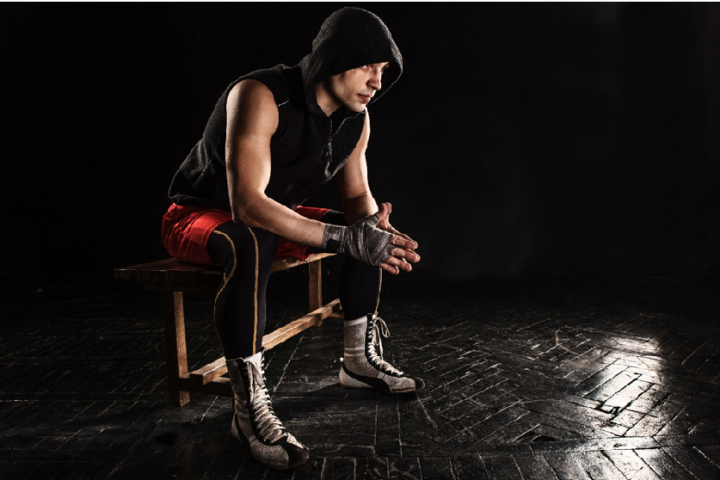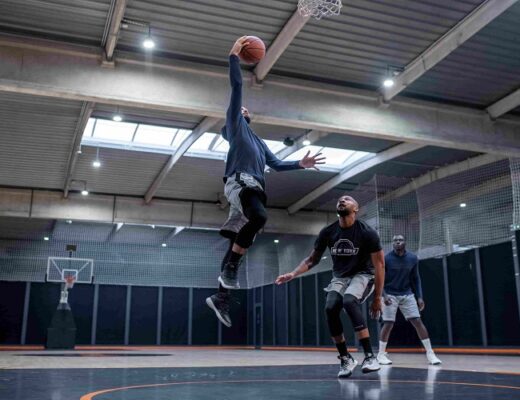modern boxing exists in two forms; amateur and professional. There is a difference between both types. The structures are different, and the most significant difference is that professional boxers cannot compete in Olympic events.
Being a profession all boxer is lucrative. The fighters are always on a contract, and they fight for prizes depending on the events in their respective classes. However,some authorities oversee the boxer’swell being and safety while undertaking the sports.
Image: Free pik
On the other hand,some federations handle professional boxing and exist independently of each other. They set the rules for the boxing matches, the individuals judging or referring to their events. In addition, the federation has belts and a wards to the fighters depending on the categories. You can read here about the sport and get more insights about the sport in and out of the ring. However,this piece will offer insights into the journey to becoming a professional in sports.
The Stages to becoming a Professional Boxer
An amateur box gerund ergoes various stages before becoming a pro. Below are the stages;
1. Enroll in a Boxing Club or Gym
Although fitness centers offer boxing classes, it is vital to find an entity that focuses solely on boxing. The ideal boxing club or gym should have affiliations with the professional authorities governing the sports in their region. Ensure you research the club or gym you want to join to know if it has the proper equipment or personnel for the job.
The management can tell you more about the facility and if there are any subscriptions to their services.Check out the coaches and their expertise in the sports,including qualifications.Inquiries will help deter mine if the clubor gym is right for you. So do not shy away from asking questions since you want to be sure of what you are enrolling into.
2. The Basics
Learning the basics about boxing helps with the subsequent stages in your quest to be a professional. You do not want to start learning the boxing terms when already working with a coach. It entails learning about the different types of punches and the various plays in the ring. The theoretical work will put you at an advantage when learning the practicality.
3. Training
With knowledge about the different techniques in boxing, a coach or trainer will help you develop the skills for boxing. Apart from learning how to throw your punch and other ways to hit an opponent, the training should focus on movement,positioning,and countering the opponent. It helps in developing the skill and making you a versatile boxer.
Apart from the boxing skills,other activities help with success in boxing. It includes agility, endurance,and a wariness exercises. Therefore, it is critical to follow the coach’s instruction seven though you do not see the immediate impact of the activities. On the contrary,it isa holistic approach to becoming the best boxer. It is vital if you want to be a professional.
Apart from the physical and boxing routines, it is vital to develop a healthy diet. It will supplement the essential food elements and nutrients necessary for the workouts. Consider the intensity exercises you engage in to get the best from the training and protect yourself from injuries. However, there is no need to worry if you have a professional trainer as they have the right skills to take you through your training sessions.
4. Start Amateur Boxing
After enrolling in a boxing club or gym and training hard, the next stage is to start as an amateur boxer.You will need to register with the relevant organization in your region. The internet can help you search for the entities, and you can apply as an amateur boxer. You will require a physical examination for them to ascertain your health conditions and if you are fit for matches.
Your club and management can help organize events to build your experience. It may include fighting other boxers in your club or joining the amateur leagues. At this stage,you will be wearing protective gear for the boxing matches. You willl earn the best practices with a mateur boxing as you prepare to be a professional.
Fitness is important for your development as an amateur boxer. It is vital to compete in categories you are comfortable with. The class depends on weight. You can start with the lower categories and progress through the classes with thereof your coach.
5. Turning Professional
The intensity of professional boxing matches is higher than the amateur buts. There fore,it is vital to increase the training intensity and types of workouts you undertake. Consider your movement, speed, punching power, and defense to help your professional boxing success.
As a professional boxer,you will need management, and you can consider established firms for the role. Scrutinize the type of contracts you will sign with the help of an attorney to avoid exploitation. Since the management will be organizing your events, percentage of the earnings will be theirs; it is mostly 20% of the money. It is advisable to have other work you doon the side. Invest the money you earn from professional bouts to plan for life after your boxing career.
Get the licenses from the professional commissions and federations governing professional boxing. Check the requirement sin your region and what you will need to join the entities like WBA, WBC,WBO,and IBF. There are belts in each federation, and your goal should be to beat opponents and get the belts. Apart from the monetary awards, you will be a prominent boxer if you win several belts from the commissions.
Conclusion
The road to being a professional boxer is attainable for every one who believes in themselves and works hard to achieve their dreams. You can find a professional boxer and a champion you can learn from. Study their professionalism in and out of the ring.
People are different,and therefore you need to know what you want to achieve the results you desire. Have all the best in your quest to be a professional boxer.




